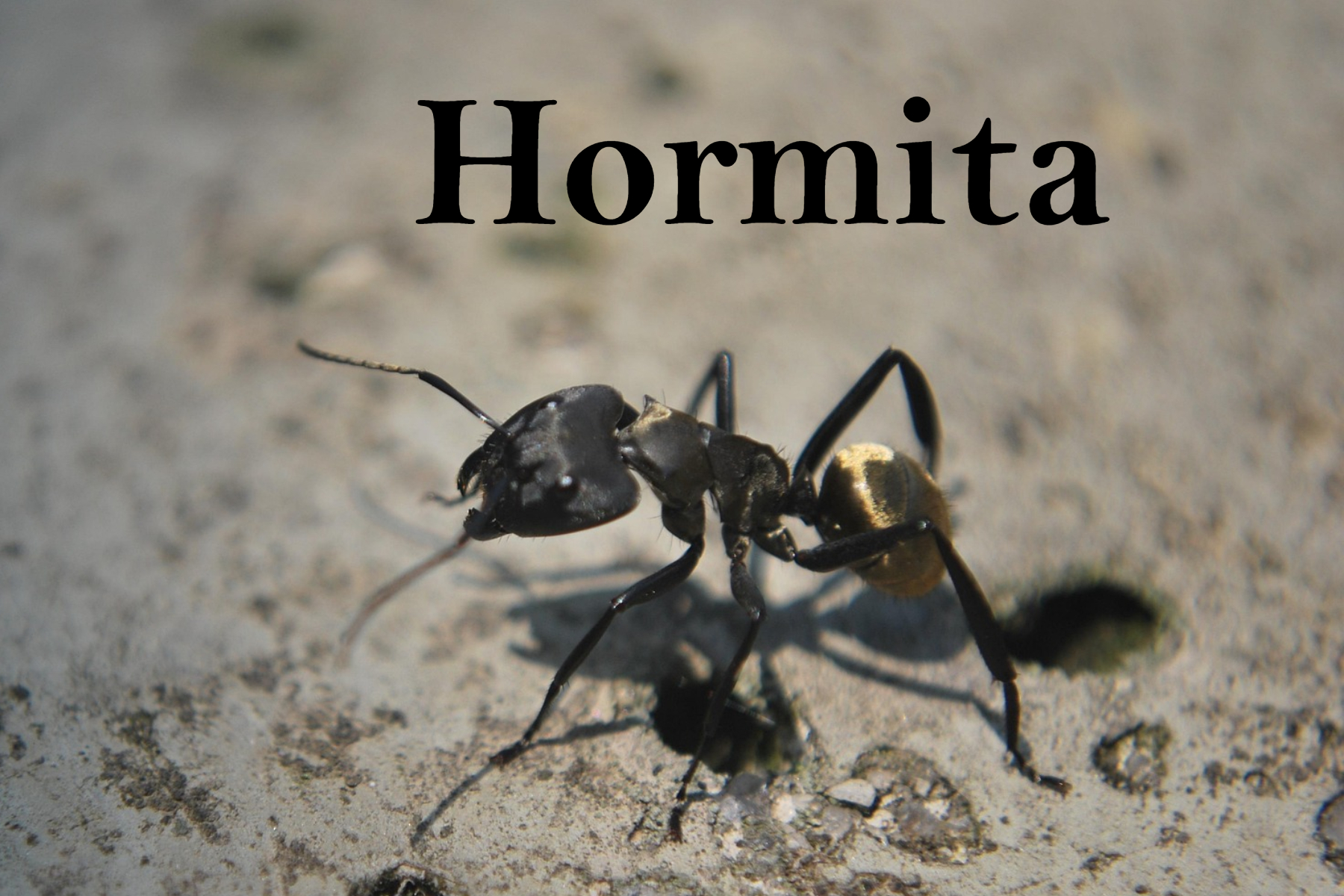Blog
Hormita: The Curious Term Making Waves in Pop Culture

Have you ever come across the word hormita and wondered what it means? It looks like a tiny word, but it has a warm, sweet feel to it. Even though it’s not in the dictionary, people still use it in real conversations, stories, and even songs. That’s what makes it so special.
In today’s article, we’re going to talk about everything related to hormita. We’ll look at where it comes from, what it really means, how people use it, and why it carries such a strong feeling, especially in Spanish-speaking cultures. You’ll see that this little word actually has a big story to tell.
Quick Bio Table: Hormita
| Feature | Details |
|---|---|
| Term | Hormita |
| Language Origin | Spanish (from “hormiga” meaning “ant”) |
| Meaning | Little ant; a loving or cute way to describe a tiny ant |
| Word Type | Diminutive form (informal and affectionate) |
| Usage | Common in Latin American speech, stories, and nicknames |
| Found in Dictionary | Not in major dictionaries, but widely used colloquially |
| Cultural Relevance | Symbol of hard work, affection, and gentleness |
| Popular Usage | Nicknames, children’s songs, online handles, branding |
What Does Hormita Really Mean?
The word hormita comes from the Spanish word hormiga, which means ant. Ants are small insects we see almost every day—walking in lines, carrying crumbs, and working nonstop. They are tiny, but they are strong and always busy.
In Spanish, adding the ending “-ita” to a word makes it sound smaller or more affectionate. This grammatical form is called a diminutive. So, when you take hormiga and add -ita, you get hormita, which literally means “little ant.”
But there’s more to it than size. Hormita expresses tenderness, affection, and admiration, especially toward someone who’s small, hardworking, or cute.
Why Is Hormita Not in the Dictionary?
Surprisingly, you won’t find hormita in most major Spanish dictionaries. That doesn’t mean it’s incorrect or fake—it’s just informal and widely understood through use.
In spoken Spanish, it’s very common to add -ita or -ito to words to soften them or make them sound friendlier. You’ll hear examples like:
-
casita (little house)
-
florcita (little flower)
-
manita (little hand)
Hormita follows this same pattern and fits perfectly into Spanish-language speech, especially in storytelling or when talking to children.
Hormita and the Spanish Language
The Spanish language embraces warmth and emotion. One way it does this is by using diminutives. Diminutives are more than just grammatical tools—they show care, intimacy, and endearment.
For instance:
-
niña → niñita
-
perro → perrito
So when we say hormita, it isn’t just a small ant—it’s a tiny, adorable, hardworking ant, often wrapped in a bit of love.
That’s why this word often appears in bedtime stories, songs, nursery rhymes, or casual chats among families.
How People Use Hormita in Real Life
You’ll hear hormita in the kitchen, at the park, or in schoolyards. It’s not formal, but it’s everywhere. Picture this:
A child spots an ant and says, “¡Mamá, una hormita!”
The mother responds, “Sí, mi amor, ¡y está trabajando mucho!”
It becomes a way to connect emotionally with both language and nature. It’s also used as a compliment for someone quiet but diligent:
“You’re a real hormita—you never stop helping!”

Hormita in Children’s Stories and Songs
In many Latin cultures, hormita pops up in storybooks and music. It represents virtues like:
-
Hard work
-
Bravery despite being small
-
Teamwork
A popular tale might be La Hormita Valiente (“The Brave Little Ant”)—a tiny ant who gets lost but finds her way home using cleverness and kindness.
Songs featuring hormita are common in classrooms. These rhymes help kids learn lessons while enjoying playful rhythms.
What Hormita Teaches Us About Ants
Ants are nature’s perfect symbol of:
-
Discipline
-
Teamwork
-
Persistence
When someone is called a hormita, it means they embody those traits—especially if they’re doing it quietly and humbly. This metaphor brings respect to everyday actions like cleaning, organizing, or caring for others.
Hormita as a Loving Nickname
Parents, grandparents, and even teachers use hormita as a term of endearment. It’s especially common when someone is small, helpful, or sweet.
Examples:
-
“You’re my little hormita—so helpful today!”
-
“She’s always working hard, like a hormita.”
This nickname builds closeness. It’s a gentle way to praise someone, especially children.
Funny and Local Sayings Using Hormita

In different Latin communities, the word hormita is used in:
-
Jokes
-
Sayings
-
Friendly banter
Examples:
-
“¡Esa niña es una hormita silenciosa!” (That girl is a silent little ant!)
-
“Mi abuela dice que fui una hormita cuando era chico.” (My grandma says I was a little ant as a kid.)
It’s common in rural towns, especially where community values and hard work are appreciated.
Creative Uses: Products, Stories, and Usernames
With the rise of social media, people have adopted hormita into branding and usernames. It’s cute, memorable, and meaningful.
Examples:
-
Hormita Limpia – A natural cleaning brand
-
@hormita_feliz – A positive Instagram account
-
Hormita la Exploradora – A cartoon ant for educational videos
The word evokes innocence, diligence, and charm—perfect for online storytelling or brand identity.
Is Hormita a Mistake or Made-Up Word?
Many people assume hormita is a mistake. But linguistically, it’s built exactly like other Spanish diminutives.
People sometimes confuse it with:
-
hormona (hormone)
-
Scientific-sounding words like “hormita de calcio” (which doesn’t exist)
But hormita, when used contextually, clearly means a small, lovely ant—not a typo or accident.
Hormita in Culture and Language
Every language has emotionally charged words. In English, you might say “sweetie” or “tiny tot.” In Spanish, hormita fills that space.
It connects:
-
Adults and children
-
Speakers and stories
-
Hard work and affection
The word may be small, but it creates bonds of emotion and reflects cultural values like love and perseverance.
Bottom-Line
So now you know—hormita is not just a cute version of hormiga. It’s a cultural symbol of quiet strength, affection, and dedication.
Even though it’s tiny and unofficial, it reminds us of something important:
Sometimes, the smallest words carry the biggest stories.
Next time you hear it—whether in a song, a story, or from a child—smile. Because that little ant has traveled a long way to warm your heart.
(FAQs)
1. What does “hormita” really mean?
It means “little ant” in Spanish and is often used as a loving or playful way to refer to someone small or hardworking.
2. Is “hormita” a real word if it’s not in the dictionary?
Yes! It’s a grammatically correct diminutive used in daily Spanish, even if not officially listed.
3. Can someone be called “hormita” as a nickname?
Absolutely—especially children, quiet helpers, or hardworking individuals.
4. Is “hormita” used in songs or kids’ content?
Yes! It often appears in Latin American children’s stories and music to teach values like teamwork and effort.
5. Can “hormita” be used for brands or social media?
Definitely! Many use it in usernames or brand names to create a warm, gentle impression.
-

 Celebrity9 months ago
Celebrity9 months agoNick Schmit? The Man Behind Jonathan Capehart Success
-

 Celebrity9 months ago
Celebrity9 months agoChristina Erika Carandini Lee: A Life of Grace, Heritage, and Privacy
-

 Celebrity9 months ago
Celebrity9 months agoTrey Kulley Majors: The Untold Story of Lee Majors’ Son
-

 Celebrity9 months ago
Celebrity9 months agoJamie White-Welling: Bio, Career, and Hollywood Connection Life with Tom Welling
















